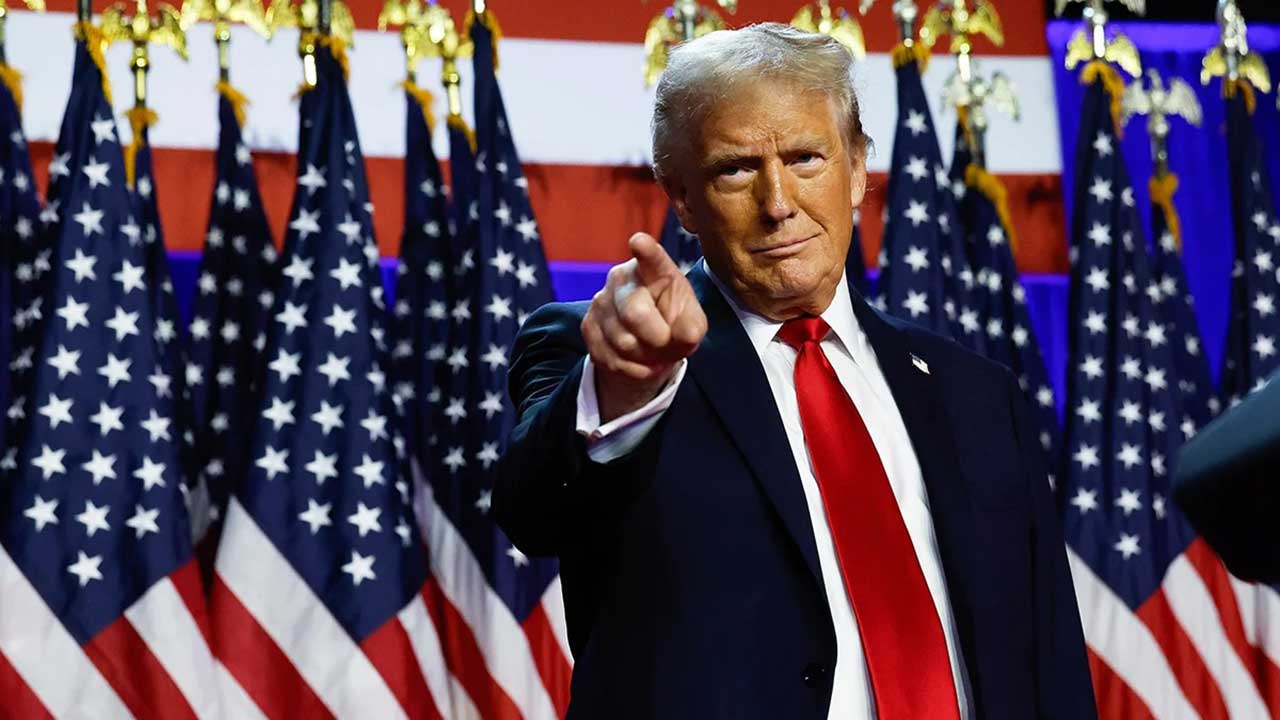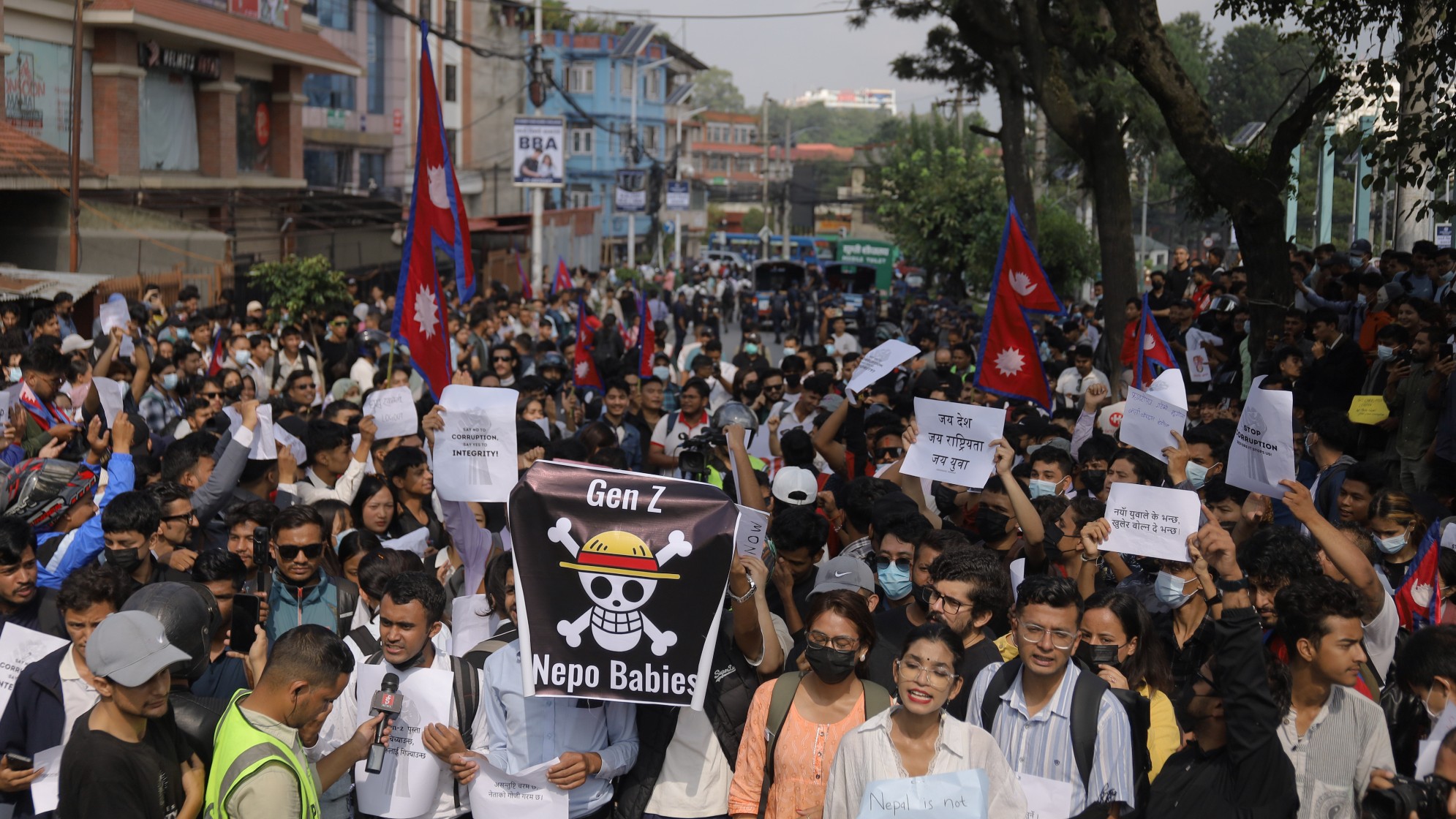 The primacy of strategic national interests, ambivalence on human rights, the whimsical observance of the rule of law, divergent economic and political ideologies, muscularity and isolationist foreign policy goals by super powers and others, combined with the determination of independent nations to exercise all the rights – albeit not all the responsibilities – consistent with sovereignty, inevitably leads to conflict between nations.
The primacy of strategic national interests, ambivalence on human rights, the whimsical observance of the rule of law, divergent economic and political ideologies, muscularity and isolationist foreign policy goals by super powers and others, combined with the determination of independent nations to exercise all the rights – albeit not all the responsibilities – consistent with sovereignty, inevitably leads to conflict between nations.
The scale, scope, and complexity of such a conflict, informs the ideological and or informed policy response manifested in a complex trifecta, of first, the ideal; that is, diplomatic rapprochement. Second, is the extreme; evidenced in warfare, the deployment of multinational peacekeeping forces, UNSC Chapter VII sanctions, etc.
Third, which could be a combination of the first two, are economic or trade sanctions inter alia. Ergo, there is a material nexus between geopolitics and economic sanctions in the complex vicissitudes of foreign policy, international affairs and assertions by sovereign states to a rules-based global orthodoxy.
In its ordinary sense, sanctions are punishments for bad behaviour exercised by a superior authority and power – like parents, schools, and law enforcement. This is straightforward and logical because for discipline, societal order, laws, procedures, rules and regulations not only need to be in place, but need to be upheld. The warrant for this is constitutional, widely defined. However, within the practical context of geopolitics, international relations and jurisprudence the concept, and application of sanctions, is contested because that dynamic is moderated by the sovereignty of independent nation states.
Put another way, which should country A, sanction country B, if they are both independent nations? Well, there are basic norms, laws, and treaties, which regulate international affairs like the UN Charter 1945, the African Charter on Human Rights 1981, domestic constitutions, etc, and breaches of those laws justify sanctions depending on the materiality thereof, the adverse impact on human life, whether it entailed the use of banned biological, chemical and nuclear weapons, whether or not it is genocidal, amongst others.
Thus, sanctions are coercive policy choices made by countries or institutions to curtail their relations with a particular state so as to either compel or wheedle that country to change its policies or “address potential violations of international norms and conventions” (Morgan, Bapat and Krustev 2009; Syropolous et al 2009).
The warring orthodoxy of sanctions establishes that they are geared towards multifarious objectives including advancing democracy, human rights and the rule of law, combating terrorism, subverting alternative political ideologies, political destabilisation and regime change, quickening the cessation of military hostilities amongst nations, safeguarding international peace and security et al.
In foreign policy and international affairs paradigms, sanctions generally fall under four broad categories: (1.) Geographical; this is where the foreign policy goal penalises a specific state or countries on grounds of strategic national interests. This proposition is exemplified by Executive Order 13769 signed by United States 45th President Donald Trump, on January 27, 2017, entitled Protecting the Nation from Foreign Terrorist Entry into the United States.
That order specifically banned nationals of seven predominantly Muslim states – Iran, Iraq, Libya, Somalia, Sudan, Syria, and Yemen. The order was termed the “Muslim ban” because it banned nationals of these nations from admission to the United States. However, it was eventually overturned by the courts on March 6, 2017.
(2.) Thematic sanctions; as the name implies are subject-based and adaptable to the unique circumstances which the policy seeks to penalise. These could entail sanctions for breaches of conventions, laws and treaties relative to chemical weapons, cyber-attacks, human rights, immigration, human organ trafficking, people smuggling, and terrorism.
(3) Political sanctions; in the main, these seek to penalize nations, institutions and individuals that engage in behaviours and practices which breach basic human rights, the rule of law, natural justice and can be of extra-territorial application. (4) Economic or trade sanctions; which seek to damage or sabotage the financial viability of the intended offender country, institution or individual. These could entail asset freezes, redirection of resources to hypothecated funds; export/import restrictions, trade tariffs and embargoes.
Notwithstanding these categorisations of sanctions, the geopolitical underpinnings are implicit, because they all seek to advance the strategic, ideological, domestic or foreign policy goals of the sanctioning country/power. Plainly, sanctions are not necessarily invoked upon the admirable prospectus of altruism. No! It’s realpolitik.
Whilst there remain strong arguments and counter-arguments for sanctions regime in a virulently contested world, the fact is that they have assumed a greater ascendancy in foreign policy, a phenomenon which raises interesting posers.
How will small nations address threats of punitive economic sanctions threatened by superpowers? Can sanctions cripple a determined superpower’s strategic foreign policy objectives? To what extent do sanctions create the law of unintended consequences where the very fact of sanctions catalyses sanctions-bursting innovation by the offending country?
The United States’ tough economic sanctions regime embedded within the Comprehensive Anti-Apartheid Act 1986, secured by cross-party Congressional validation, targeted South Africa for its extremist racialist apartheid policy. The robust legislation banned the importation of many South African products such as steel, iron, uranium, coal, textiles, and agricultural commodities into the United States; banned the South African government from holding U.S. bank accounts; halted South African Airways from landing at U.S. airports; sabotaged any form of U.S. foreign aid or assistance to the then pro-apartheid South African government; prohibited all new U.S. investments and loans in South Africa, inter alia.
Nigeria’s Afrocentric foreign policy and trade sanctions against the country was equally germane at the time, ditto vigorous local and international campaigns, in catalysing the collapse of the apartheid regime; which helped establish the conditions for multiparty democracy still operating in South Africa till date! The point being that in this particular instance, economic sanctions worked, and were driven by noble strategic goals: equity, justice, the rule of law, and the destruction of apartheid!
Following Russia’s invasion of Ukraine on February 24, 2022, European Union member states in close partnership with non-member countries including the United States, United Kingdom, Canada, Australia and Japan imposed over 16,400 sanctions against Russia. These Western economic sanctions included freezing over $340 billion worth of Russian assets, banning critical technology and weapons components, banning Russia’s critical energy exports and flights inter alia.
Russia’s allies, Belarus, and Iran, have also been targeted by the EU for proactively supporting its war of aggression. However, whilst these sanctions might have impeded Russia’s capacity to prosecute its war and impaired its economy, it has by no means crippled the country; nor brought about regime change which of course is the unstated objective of Western countries and the NATO allies who have spent over $240 billion in sophisticated military aid and equipment supporting and defending Ukraine.
Even so, according to Reuters, “the Russian economy has shown solid growth in many sectors while unemployment remains at a record low, new data showed on Wednesday, prompting officials to hint at a brighter outlook for the year despite Western sanctions over the war in Ukraine.” This begs the question as to the efficacy of the sanctions regime?!
Critics of Western economic sanctions against Russia, highlight double standards against the West, which, they claim, watched blithely as Palestinian Gaza and the West Bank were destroyed in the Palestinian/Israeli conflict which recommenced on October 7, 2023 with heavy casualties on both sides! Further evidence on the efficacy of economic sanctions in relation to Russia, is certainly required.
Pursuant to Nigeria’s execution of nine human rights activists, including Ken Saro-Wiwa in November 1995, during General Sani Abacha’s dictatorship, the European Union imposed an arms, sporting, and a visa embargo -on targeted regime officials-, on the country. With extensive pressure from the Commonwealth, Nigeria’s traditional allies like the United States and the United Kingdom, local and international pressure from the National Democratic Coalition and others, Nigeria’s last military regime was ultimately replaced by a multi-party democratic model on May 29, 1999 and continues till this day. Did sanctions work? Perhaps!
More recently in January 2025, invoking hardline “America First” doctrines, U.S. President Trump threatened to “immediately” impose 25 per cent economic tariffs against Columbia if the latter refused to accept its deported nationals forthwith; which would be raised to 50 per cent within a week if the South American nation did not oblige.
Colombia initially refused to accept them as they were not treated with dignity and were being returned on U.S. military planes. Colombia eventually relented. American muscular foreign policy? Yes! Colombia’s strategic realignment? Yes, especially given the fact that the United States is Colombia’s most significant trading partner with a 2006 free trade compact which exceeded $32 billion in bilateral trade in 2023 alone.
In the final analysis, whilst there may well be valid and noble reasons for trade and thematic sanctions, as was the case in anti-apartheid and anti-military dictatorship sanctions against South Africa and Nigeria in the 1980s and 1990s respectively; in the 21st Century, geopolitics, blood-and-thunder ideology, muscularity, the force of personality exemplified in Trump’s handling of the recent Colombia spat is a cornerstone of foreign policy especially by superpowers.
Russia’s Putin is exacting a similar leading influence in the Southern Caucasus, Africa, parts of the Middle East and beyond. Smaller states will have to adjust, without sacrificing their sovereignty, as superpowers defiantly wield power and influence outside the so-called norms of a rules-based global orthodoxy.
The World Trade Organisation needs to step up its game in carefully navigating an extremely volatile environment power play, muscularity, and isolationism, whilst upholding fair trade globally. That’s no mean feat. Nonetheless, strategic realignment will assume a much greater meaning in global dynamics in the short, medium and longer term.
Ojumu is the Principal Partner at Balliol Myers LP, a firm of legal practitioners and strategy consultants in Lagos, Nigeria, and the author of The Dynamic Intersections of Economics, Foreign Relations, Jurisprudence and National Development.






